November 19, (THEWILL) – In the ever-evolving football landscape, the infusion of technology was envisioned as a beacon of hope, a remedy to the human errors that often sway the fate of matches. Yet, the advent of Video Assistant Referee (VAR) technology has cast a shadow of contention over the beautiful game. Intended as a beacon of accuracy, VAR’s journey in football has been tumultuous, marred by debates, controversies, and polarizing opinions.
While aimed at refining decisions and enhancing fairness, its application has sparked fierce discussions, questioning its very impact on the sport it sought to refine. As the embers of debate rage on, it is pivotal to dissect the plethora of contentious VAR decisions that have brought the technology under scrutiny, while also acknowledging its commendable moments. The question looms large: is VAR a force enhancing the essence of football or a disruptive influence challenging its very spirit?
When VAR was introduced to eliminate match-defining mistakes, the hope was that it would complement referees and let the sport take centre stage. Instead, today, controversial VAR decisions are being dissected for days after matches across Europe. Calls are growing louder, including from England manager Gareth Southgate, that the constant stoppages and reviews are “sucking the enjoyment” out of goals and the fan experience.

Southgate, attending Chelsea’s controversial 4-1 win over Tottenham Hotspur, said he was “bored” by the constant interruptions. Despite agreeing the decisions were ultimately correct, he noted “Never mind the players. What about the fans?”
The issues continued in Manchester United’s recent UEFA Champions League match versus Copenhagen. VAR saw Marcus Rashford harshly sent off and a questionable handball awarded against United’s Harry Maguire. Rashford’s red card impacted the match, with United surrendering a 2-0 lead to lose 3-4.
Among the most controversial VAR decisions in the English Premier League of recent, to begin with that Chelsea 4-1 Spurs match, there were nine VAR checks that completely disrupted play to go with all the goals the technology disallowed. Then, the Wolverhampton Wanderers 1-2 Sheffield United tie, where a late penalty, scored for the 2-1 win, was wrongly awarded.
There is no forgetting the Liverpool 1-2 Spurs game. There, Luis Diaz’s goal was incorrectly ruled offside by VAR. More recently, the Newcastle 0-1 Arsenal fixture. Newcastle’s winner stood after multiple VAR checks, which riled the Gunners’ faithful, but Arsenal’s Kai Havertz should have seen red, as well.
The common refrain is that VAR takes away from the spontaneity and spectacle that makes football special. While aiming to erase clear refereeing mistakes, it is instead creating new controversies and putting technology at the forefront. The balance between accuracy and entertainment continues to be debated.
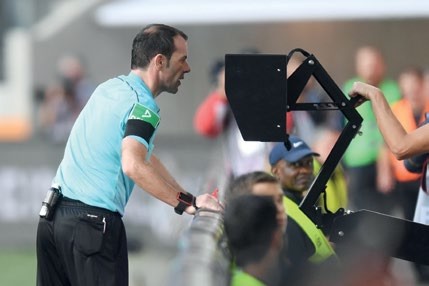
However, while contentious VAR decisions have dominated headlines, it is crucial to acknowledge instances where the technology has been instrumental in rectifying on-field errors. VAR’s intervention in identifying fouls and handballs that would have otherwise gone unnoticed stands as a testament to its potential for fairness and accuracy. In matches such as West Ham United versus Chelsea, where a goal was rightly disallowed due to a foul on the goalkeeper after meticulous VAR review, the technology played a pivotal role in upholding the rules of the game.
Similarly, Brighton and Hove Albion’s disallowed goal for handball against Tottenham Hotspur showcased VAR’s capability to detect infringements, ensuring adherence to the laws of football. These correct interventions by VAR serve as a beacon of hope, highlighting its ability to maintain the game’s integrity and fairness by rectifying erroneous on-field decisions.
Opinions surrounding VAR span a wide spectrum, showcasing contrasting viewpoints from stakeholders within the footballing community. While some laud its potential for rectifying errors, others decry its impact on the game’s essence. Managers, such as Tottenham’s Ange Postecoglou, express frustration over the interruptions caused by VAR reviews, lamenting the disruptions to the game’s flow and the diminishing authority of on-field referees. In contrast, voices like Arsenal’s Mikel Arteta critique the standard of officiating, urging improvements to elevate the accuracy and consistency of decisions.
The influence of VAR on the emotional fabric of football cannot be understated. It has sparked debates in pubs, living rooms, and press conferences, raising questions about its interference with the raw passion and spontaneity that define the sport. Former officials, including Keith Hackett, highlight the worrisome decline in refereeing standards, both on the pitch and within the VAR room, underscoring the need for a holistic reevaluation of the system.
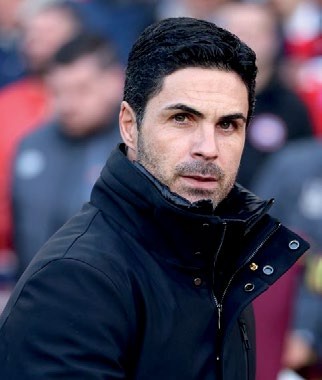
However, amidst the fervent debates, there exists a nuanced discourse acknowledging VAR’s potential benefits if applied judiciously. The technology, when used correctly, stands as a guardian of fairness, offering a layer of precision that aids in unravelling intricate moments that escape the human eye.
Calls for increased transparency in VAR decisions echo across footballing circles, drawing parallels with systems adopted in other sports like rugby and cricket. The demand for a more open process stems from a desire to comprehend the rationale behind VAR rulings, fostering greater trust and understanding among fans, players, and managers. The notion of revealing live VAR communications to spectators, akin to other sports’ practices, has met resistance from authorities, citing concerns about potential chaos and disruption.
The potential historical impact of VAR implementation remains a subject of intrigue. Retroactively reevaluating past controversial moments through the prism of VAR prompts contemplation on how football’s narratives and outcomes could have altered, leaving a profound mark on players, managers, and clubs involved. This retrospection raises compelling questions about the historical significance and the hypothetical transformations in football’s landscape if VAR had been available in bygone eras.
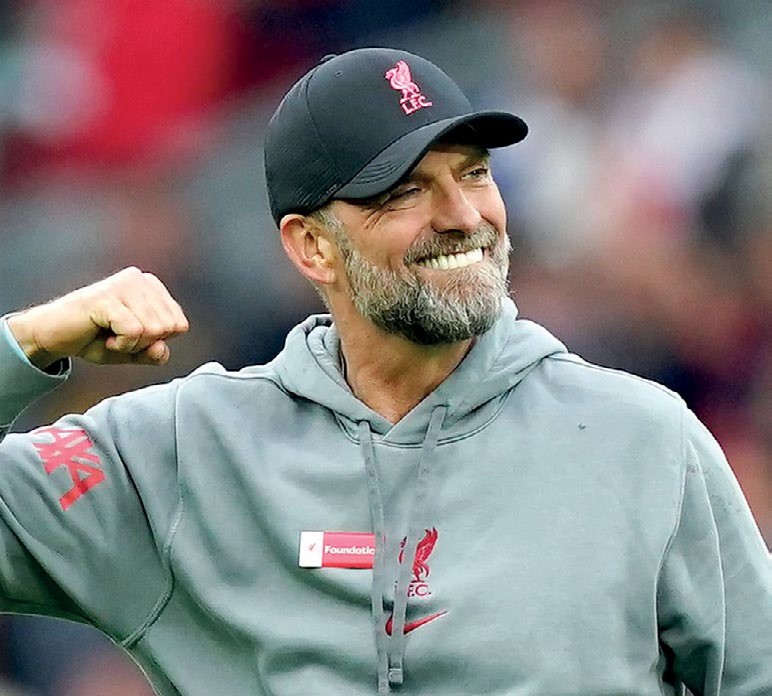
As VAR continues to evolve, its impact goes beyond the confines of the pitch. It transcends the technicalities of offside decisions and penalty calls, permeating the essence of the sport and influencing the spectator experience. The quest for transparency in VAR rulings remains a pursuit intertwined with the broader narrative of football’s evolution, navigating the delicate balance between technological progression and the preservation of football’s intrinsic allure.
Arteta’s scathing critique of referees following Arsenal’s contentious defeat to Newcastle United threw a spotlight on the contentious nature of VAR decisions. The Gunners’ manager, visibly agitated by Anthony Gordon’s controversial goal, labelled the decision as “disgraceful,” expressing profound disappointment and shame in the officiating standards. Arteta’s outburst aimed at the officials drew swift reprimand from the Football Association (FA), resulting in charges of misconduct.
The FA’s statement characterised Arteta’s remarks as “insulting towards match officials” and deemed them detrimental to the game’s integrity.
This incident further underscores the polarising impact of VAR decisions on managers and clubs. While Arteta’s emotional reaction highlighted the frustration among football figures, the FA’s response served as a reminder of the stringent protocols governing managerial conduct. The clash between passionate criticism and institutional disciplinary actions underscores the volatile terrain engendered by VAR’s contentious rulings, where emotions often collide with regulatory boundaries.
Howard Webb, the PGMOL chief, stood in defence of the officials’ decision, reinforcing the stance that VAR correctly abstained from intervening in the controversial goal. The impending disciplinary action against Arteta amplifies the ongoing debate about the boundaries of criticism within the footballing realm, delineating the thin line between passionate expressions and conduct deemed detrimental to the game.
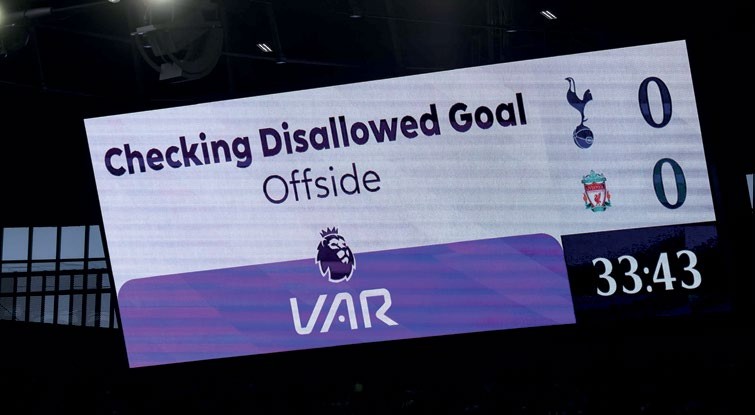
As the debate continues on another chapter of contentious VAR decisions and passionate outcries, football finds itself at a crossroads. The introduction of technology was meant to be a herald of precision, an arbiter of fairness in a game woven with passion and unpredictability. Yet, VAR’s journey has been a mosaic of polarising moments, stirring debates that resonate far beyond the pitch.
The controversies surrounding offside calls, fouls, and handballs have spotlighted the intricacies and imperfections of a technology meant to refine the game’s essence. In the cacophony of contrasting opinions from managers, players, and former officials, the need for introspection and refinement echoes louder than ever.
The emotional fabric of football, interwoven with raw passion and spontaneous celebrations, faces the challenge of harmonising with a technological watchdog that, while striving for precision, sometimes veers into subjectivity. The quest for transparency in decisions and the broader impact on historical narratives underscore the need for a delicate balancing act, preserving the purity of football while embracing the benefits of technological progression.
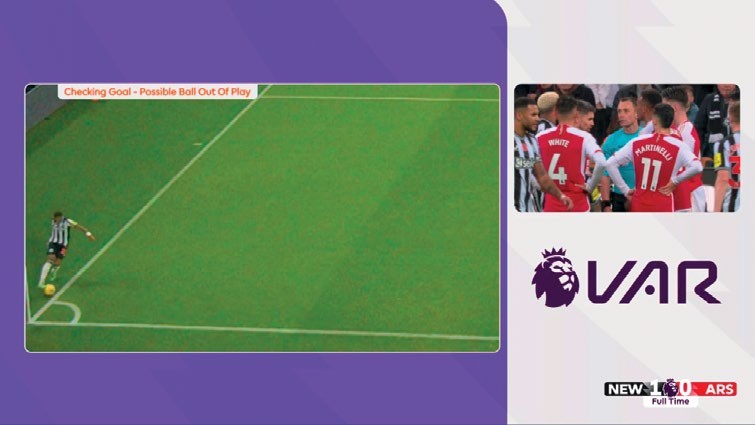
As VAR continues its evolution, it remains imperative to tread cautiously, acknowledging its potential to rectify errors while safeguarding the very essence that makes football the global spectacle it is. The journey towards refining VAR’s application and aligning it with the sport’s spirit is a pursuit fueled not just by technological advancement but by an unwavering commitment to the soul of the beautiful game.
About the Author
Jude Obafemi is a versatile senior Correspondent at THEWILL Newspapers, excelling in sourcing, researching, and delivering sports news stories for both print and digital publications.




